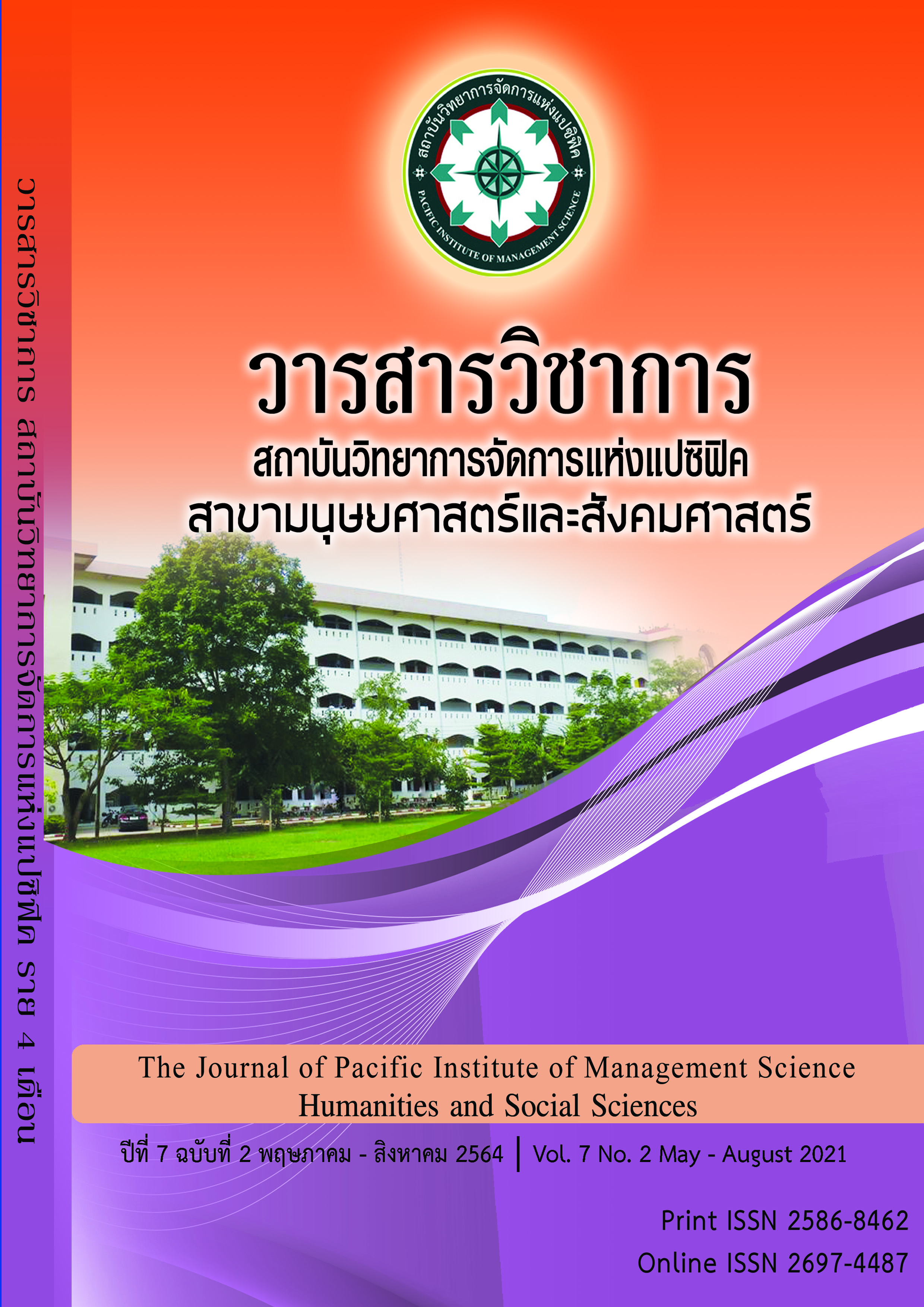The Leadership Development
Keywords:
Leadership, Leadership DevelopmentAbstract
Leadership is an important skill for organizational development and management because it leads to practice that achieves the organization’s goals. Whether public, private, global, national, or local, leadership is also important. It produces noticeably different results and may have further questions about what kind of leadership style or what type can lead to innovation. To be an innovator or a new change which is the most important idea in Thai Education 4.0, therefore this article purposes to present opinions on Thai Education, by selecting characteristics of leadership styles that are appropriate for the situation "Thai Education 4.0", which is a situation that challenges Thai society especially the intellectual societies in educational institutions at all levels.
However, if thinking only about the leaders of the educational institutions. Leadership skills may not be limited to a group of administrators only, but also includes those affected by the leadership of the administrators, including teachers or instructors and most importantly the learner which means students. Therefore, each group should have leadership according to the level of each group to enable Thailand and Thai Education in 4.0.
References
ชาญชัย อาจินสมาจาร. (2550). ทักษะภาวะผู้นำ. กรุงเทพฯ : มัลติอินฟอร์เมชันเทคโนโลยี.
ณิรดา เวชญาลักษณ์. (2560). ภาวะผู้นำทางการบริหาร. (พิมพ์ครั้งที่ 1). กรุงเทพฯ: สำนักพิมพ์แห่งจุฬาลงกรณ์มหาวิทยาลัย.
ธร สุนทรายุทธ. (2551). การบริหารจัดการเชิงปฏิรูป ทฤษฎี วิจัย และปฏิบัติทางการศึกษา. กรุงเทพฯ : บริษัท เนติกุลการพิมพ์ จำกัด.
เนตร์พัณณา ยาวิราช. (2552). ภาวะผู้นำและผู้นำเชิงกลยุทธ์. พิมพ์ครั้งที่ 7. กรุงเทพฯ : บริษัท ทริปเพิ้ลกรุ๊ป จํากัด
นพดล เจนอักษร. (2553). ทฤษฎีและแนวปฏิบัติในการบริหารการศึกษา: Theory and Practice in Educational Administration (หน่วยที่ 11 นวัตกรรมการบริหาร). พิมพ์ครั้งที่ 1. นนทบุรี: สำนักพิมพ์มหาวิทยาลัยสุโขทัยธรรมาธิราช.
ไพฑูรย์ สินลารัตน์. (2553). ผู้นำเชิงสร้างสรรค์และผลิตภาพ : กระบวนทัศน์ใหม่และผู้นำใหม่ทางการศึกษา. กรุงเทพฯ : โรงพิมพ์แห่งจุฬาลงกรณ์มหาวิทยาลัย.
ไพฑูรย์ สินลารัตน์ และคณะ. (2559). การศึกษา 4.0 เป็นยิ่งกว่าการศึกษา. กรุงเทพฯ : วิทยาลัยครุศาสตร์ มหาวิทยาลัยธุรกิจบัณฑิตย์.
มนูญ พรมรักษา. (2554). พฤติกรรมภาวะผู้นำการเปลี่ยนแปลงของผู้บริหารสถานศึกษาขนาดเล็ก สำนักงานเขตพื้นที่การศึกษาประถมศึกษาลำพูน เขต 1. มหาวิทยาลัยเชียงใหม่ : เชียงใหม่.
วิโรจน์ สารัตนะ.(2556). กระบวนทัศน์ใหม่ทางการศึกษา: กรณีทัศนต่อการศึกษาศตวรรษที่ 21.กรุงเทพฯ: ทิพยวิสุทธิ์
AchieveGlobal. (2013). “Developing the 21st-Century Leader”.Accessed December 25, 2013, Available at ที่มา http://blog.achieveglobal.com/blog/2012/07/the-virtual-leader-in-training.html (เข้าเมื่อ 5 เมษายน 2563)
Leadership Development Deone Training Center ที่มา https://www deonetraining.com/th/public-course/791(เข้าเมื่อ 5 เมษายน 2563)
Gibson, James L., Ivancevich, John M. and Donnelly, James H., Jr. (1997). Organizations, Behavior Structure Processes. International Edition. United States of America: Irwin/McGraw-
Hill.Lussier , R. N. and Achua, C.F. (2007). Effective Leadership. 3 rd ed. Ohio: South-Western.
Victor Frank. (2014). “POSITIVE THOUGHTS FOR THE DAY”. Accessed 25, Available from ที่มา http//www.oregon.gov/das/lo/docs/positivethoughts.pdf 2013: Online)
Downloads
Published
Issue
Section
License
บทความที่ได้รับการตีพิมพ์เป็นลิขสิทธิ์ของ สถาบันวิทยาการจัดการแห่งแปซิฟิค
ข้อความที่ปรากฏในบทความแต่ละเรื่องในวารสารวิชาการเล่มนี้เป็นความคิดเห็นส่วนตัวของผู้เขียนแต่ละท่านไม่เกี่ยวข้องกับสถาบันวิทยาการจัดการแห่งแปซิฟิค และคณาจารย์ท่านอื่นๆในสถาบันฯ แต่อย่างใด ความรับผิดชอบองค์ประกอบทั้งหมดของบทความแต่ละเรื่องเป็นของผู้เขียนแต่ละท่าน หากมีความผิดพลาดใดๆ ผู้เขียนแต่ละท่านจะรับผิดชอบบทความของตนเองแต่ผู้เดียว







